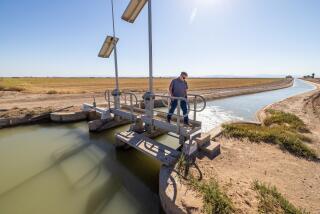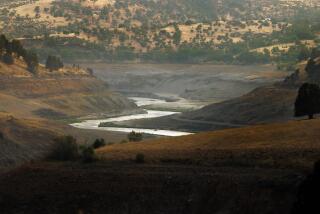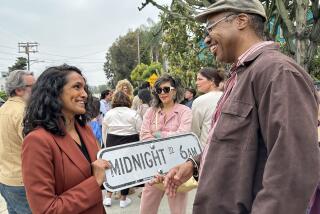What was found when Silver Lake Reservoir was last drained: Golf balls and a gold ring
The waters of the Silver Lake Reservoir, the crown jewel of the hilly neighborhood, is about to be drained.
When the reservoir is emptied this summer as part of a Los Angeles Department of Water and Power project to build a new water pipeline beneath it, it will leave a big, empty concrete basin in its wake for about a year that will hold construction trucks and equipment.
(No, you can’t go skateboarding in it like it’s a giant, empty pool).
Crews will begin draining the Silver Lake Reservoir toward the end of June or beginning of July, according to the DWP. The reservoir was disconnected from the drinking water system as part of a federal mandate to phase out open-air drinking-water reservoirs. The lost drinking water storage is being replaced by a new underground reservoir near Griffith Park called the Headworks Reservoir.
The Silver Lake Reservoir was last drained in 2008, when it was still being used to store drinking water, to eliminate water contaminated by a sunlight-triggered carcinogen. The reservoir, which long held the drinking water for the central and southern parts of the city, was disconnected from the drinking-water distribution system in December 2013, according to the DWP.
When the reservoir was drained seven years ago – amid a drought – it took several weeks for all of the water to empty out of it. The reservoir revealed hundreds of golf balls, articles of clothing and a gold wedding ring which, after being discovered, was worn by one of the biologists who helped maintain the water.
Contrary to popular belief, the reservoir is not named after the appearance of its waters. It was named after Herman Silver, an advocate of a publicly owned municipal water system who became one of the city’s first water commissioners in 1902. In 1907, shortly before Silver Lake got its first fill-up, The Times, in a story headlined “STUPENDOUS,” predicted it would become the city’s finest body of water and “a favorite resort for pleasure seekers.”
When it was built, it was an unfenced body of water surrounded by earth that resembled a mountain lake. Since then, the area has undergone a steady stream of changes. In the 1950s, Silver Lake’s earthen banks got a concrete cover, and an eastern sliver that jutted up against Silver Lake Boulevard was filled in because it didn’t get enough circulation and often stagnated. A couple of decades later, it was shut down again for a multimillion-dollar makeover after an inspection in the wake of the 1971 Sylmar earthquake found it didn’t meet safety standards.
Twitter: @haileybranson | Google+
More to Read
Sign up for Essential California
The most important California stories and recommendations in your inbox every morning.
You may occasionally receive promotional content from the Los Angeles Times.











